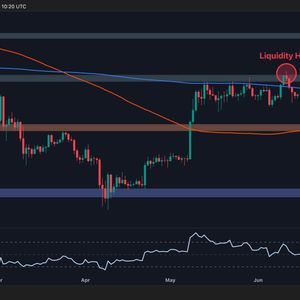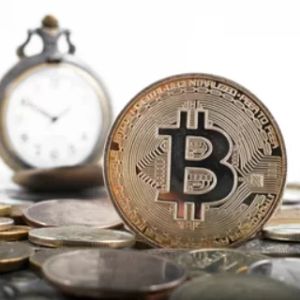The post Bitcoin Reserve Plan Sparks Nationalization Debate in U.S. Congress appeared first on Coinpedia Fintech News As the US is pushing toward becoming the crypto capital of the world, the House of Representatives is actively discussing the implications and pathways. However, along with support, the discussion has sparked some debate as well. While some US crypto experts are drawing a blueprint for crypto development, others are sharing contrasting views. Debate on Strategic Bitcoin Reserve in the US Lyn Alden, a well-known crypto advocate and financial analyst, stood against nationalizing companies to build a strategic Bitcoin reserve. She stated that this could result in breaching the property rights in the country. She said in a statement on X , “Nationalizing a company like that is a good way for a country to tell the world that they don’t respect property rights and to think twice about investing in the country for the next couple of decades.” While Alden opposed the approach, citing concerns for investors’ funds, other crypto experts shared different perspectives. Crypto Advocates in Favor of Nationalizing Companies for Bitcoin Reserve Willy Woo , who is renowned for his unique insights on crypto, created a playbook for the US bitcoin reserve detailing all the required efforts and approaches. His idea was acknowledged by Max Keiser , an American filmmaker and bitcoin advocate, who said, “Willy’s view is worth considering.” Keiser also indicated that if Russia and China implement this proposal, they could acquire 1 million bitcoin, which will potentially lead to a hash war. He also stated that such a move will push the US to seize private firms like MicroStrategy, Riot Blockchain for national security. [post_titles_links postid=”478878″] Does the US Hold the Potential for Nationalizing Companies for a Bitcoin Reserve? In 2025, the US implemented a series of laws and regulations to evolve cryptocurrency and digital assets in the country as it aspires to become the global ‘crypto capital.’ With new blockchain developments, innovative crypto regulations, and President Trump’s support, it is possible for the US to nationalize companies for a bitcoin strategic reserve in the near future. Final Thought After March 6, when Trump signed an executive order to establish a bitcoin reserve , it became a global trend. While the approach of nationalizing companies for cryptocurrency has gained massive support from US representatives, many investors are fearing to invest in those companies. [article_inside_subscriber_shortcode title=”Never Miss a Beat in the Crypto World!” description=”Stay ahead with breaking news, expert analysis, and real-time updates on the latest trends in Bitcoin, altcoins, DeFi, NFTs, and more.” category_name=”News” category_id=”6″] FAQs How would nationalizing companies for a Bitcoin reserve affect the U.S. economy and crypto market? Nationalizing companies for a Bitcoin reserve could have mixed effects. Proponents argue it could strengthen the US balance sheet, help pay down national debt, hedge against inflation, and boost the legitimacy of crypto. However, critics like Lyn Alden warn it could violate property rights, deter foreign investment, increase taxpayer risk if Bitcoin’s value crashes, and potentially lead to government manipulation of the crypto market, contradicting Bitcoin’s decentralized ethos. How does the U.S. Strategic Bitcoin Reserve compare to similar efforts in other countries? The U.S. Strategic Bitcoin Reserve, established by Executive Order on March 6, 2025, primarily involves holding forfeited Bitcoin as a long-term reserve and not selling it. This differs from countries like El Salvador, which adopted Bitcoin as legal tender and actively purchased it, or Bhutan, which accumulated reserves through state-owned mining. Other nations like China, the UK, and Ukraine also hold significant Bitcoin, largely from seizures. Many countries (e.g., Brazil, Russia, Japan) are proposing or exploring similar reserves, while others like Switzerland and the EU remain hesitant or focus on CBDCs.


















